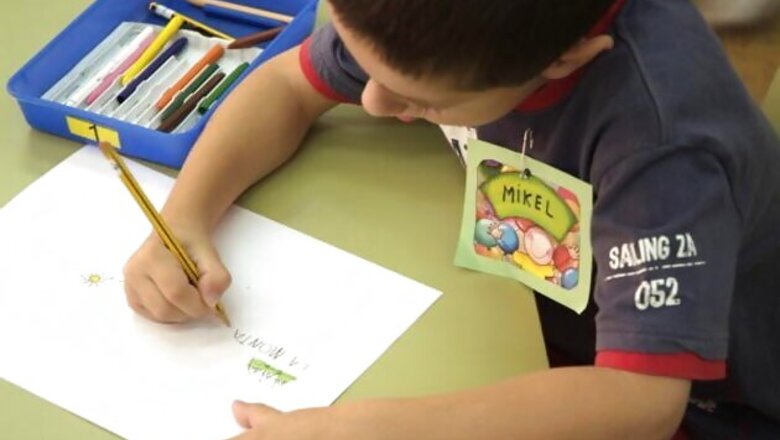
views
London: Researchers have developed a robotic arm that helps children to practise and improve their hand coordination.
The innovative new technology has been trialled for the first time in a UK school.
Researchers from the University of Leeds, Bradford Institute of Health Research and University of Indiana (US) have been working on creating a haptic robotic training system that gives children feedback and scaffolds their performance as they practise hand and wrist movements commonly made during handwriting and other manual tasks.
The device has already been tested in a US study, results showing that the increased feedback it provides particularly aids kids who have underlying movement problems, providing them with the extra support they need whilst trying to learn everyday tasks they typically have great difficulty with (eg handwriting, using cutlery and dressing themselves).
A child holds a pen connected to the cradle of a small robotic arm. They then move the pen around in order to play 'computer games' presented on the screen of the computer.
The games the children play require them to practise hand and wrist movements commonly made during handwriting and other manual tasks, researchers said.
As the child plays the games the robot's arm (purple arrow) helps them learn the correct movements by pushing and pulling the pen in the direction required to make the right moves.
The strength to which the arm pushes/pulls towards the correct movement can be varied so that as the child becomes more confident the arm can reduce its level of support, allowing the child to increasingly do the task on their own.
"Recently we have just completed the first UK pilot study using this robotic device, demonstrating its feasibility for use in the classroom and with children of a younger age than previously studied," researchers said.
"Working with a small number of five to seven year old children in a primary school in Bradford, who had a wide range of manual abilities, we investigated their level of motivation and enjoyment whilst practising for 20 minutes on a variety of robotic arm tasks presented previously in US-based studies using the system," they said.



















Comments
0 comment